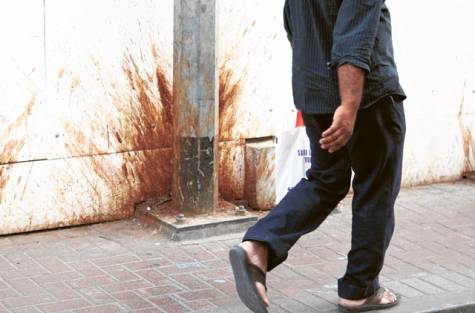
Dubai, April 26: Mindless litterbugs, gum-chewers and smokers beware. Dubai authorities have unleashed an 869-member legion of litter swatters to curb spitting, littering and throwing of cigarette butts anywhere, XPRESS has learnt.
The litter inspectors are armed with receipts and legal authority to note down car plate or labour card numbers of people caught on the spot, a senior official said. Abdul Majeed Saifaie, Director of Waste Management Department (WMD) at the Dubai Municipality, said the number of litter officers has gone up. "Most residents here are civilised and educated, but there are some who don't care. A fine is just a tool to control uncivilised behaviour. It makes people think twice before they do it," he said.
The Dh500 fine for people caught chewing and spitting paan juice (betel nut — popular among South Asians) has been raised to Dh1,000. "It's not about recovering [cleaning] costs from fines; it's about making people aware of the consequences of their actions."
Under the swat-a-litterbug drive administered by Saifaie's department, smokers are encouraged to dispose of cigarette butts in trash bins which contain ashtrays.
Suhail Mohammad Saeed Al Awadhi, head of the Bur Dubai Cleaning Unit under WMD, said 160 WMD staff, authorised to fine people caught littering or spitting, have been beefed up with staff from other government institutions — such as the police and immigration. And while there is an ongoing awareness drive to curb littering, "it does not mean we're not going to impose fines", said Al Awadhi, who also heads a five-man special team on call 24x7 to go after litterbugs. The campaign also seeks to engage the community, said Ali Abbas Ali, head of the Deira Cleaning Unit. "Cleanliness is everyone's task and not just the cleaners," said Ali. Dubai employs around 3,000 street and community cleaners.
Residents who give tip-offs about illegal paan traders or factories are given cash reward of Dh2,000. Saifaie said: "Our aim is to be one of the cleanest cities in the world. Everyone must play their part." Achieving that aim is a huge task given the number of people in Dubai from different cultural backgrounds. "We have a huge number of working-class people in the city. It's a big step to turn from a spit-away and throw-away attitude to one that respects local regulations," he said. But the crackdown and stiffer fines have also shown they work.
Al Awadhi stated that since higher fines for paan spitting and trading were imposed, the walls and pavements fouled by betel juice have gone down significantly by 70 per cent. "We have raised the stakes for illegal paan traders or home-based manufacturers with huge fines and deportation," Al Awadhi said. The litter cops also cover rural areas, such as Hatta and Lahbab.





Comments
Add new comment